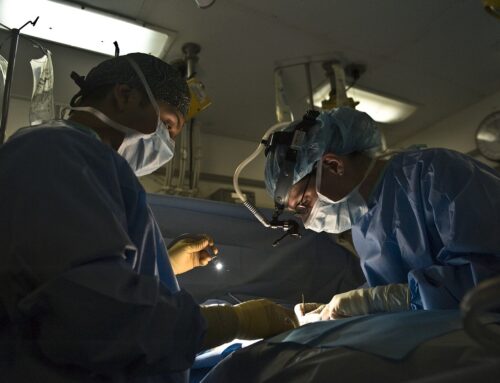1. The Obesity Epidemic
Obesity is a worldwide health epidemic. Obesity affects at least 10 percent of the Australian population. It is not just about the way you look – there are many health risks associated with obesity. As such, the benefits of bariatric surgery are not limited to significant weight loss. One of the most profound benefits of weight loss surgery is an enhanced quality of life.
2. The Risks of Obesity
Unfortunately, there are many serious risks associated with obesity. It puts you at a high risk of developing a range of medical conditions, including:
- heart disease
- stroke
- type 2 diabetes
- high blood pressure
- kidney disease
- gallbladder disease
- osteoarthritis
- sleep apnea
- gout
- asthma
- some cancers
Worryingly, because of these medical complications, obesity increases your risk of death. The latest bariatric procedures will help you to lose weight and decease your risk of developing obesity-related medical conditions.
3. Bariatric Surgery as a Treatment Option
Dr Mastakov performs two types of weight loss surgery: sleeve gastrectomy and Roux-en-Y gastric bypass (RNY). When you have a consultation with Dr Mastakov, he will conduct a thorough assessment to determine whether you are a candidate for bariatric surgery and, if so, which type of surgery is best for you.
Sleeve Gastrectomy (SG)
Sleeve Gastrectomy (SG) is a laparoscopic or keyhole surgical procedure. Unlike a gastric bypass, it doesn’t involve any surgery on the intestines. It is one of the most effective bariatric procedures as it helps you to feel full after eating a small amount of food. This bariatric procedure changes the shape of your stomach from a sac to a long narrow gastric tube. The end result is that Dr Mastakov will drastically reduce the capacity of your stomach from approximately 2 liters to 100-150 ml.
Roux-en-Y gastric bypass (RNY)
Roux-en-Y gastric bypass (RNY) involves the creation of a small stomach pouch and diversion of food away from most of the stomach and a small portion of the small intestine. The surgery allows for digestive fluids to still meet with ingested food and enable nutrient digestion and absorption. A significant advantage of the procedure is that no portion of the stomach is removed and essentially the procedure can be reversed if necessary.
If you’d like to discuss your options for weight loss surgery in Brisbane or Hervey Bay, our team would love to welcome you to our clinics. In your initial appointment, we will listen to your goals and suggest the best option to meet your weight loss goals. Contact us to book the first available consultation.
For a personalised quote and consultation please call 07 3414 3950 or 07 4148 7082 to book your appointment to see Dr Mastakov. All you need is a letter of referral from your general practitioner (GP). Your consultation is an excellent way to find out more about Weight Loss Surgery. If you decide after the consultation you don’t want to proceed further, there is no pressure to do so at all.
4. The Benefits of Bariatric Surgery
The benefits of bariatric surgery can be summarised as follows:
- long term weight loss
- reduction of medical comorbidities
- possible resolution of some medical comorbidities
- an improved quality of life
5. Who is a Candidate for Bariatric Surgery?
Lifestyle measures such as following a healthy diet and exercise regime are the best ways to address obesity and restore a healthy weight. If dieting, physical activity, and all other treatment options have not helped address your weight gain and your BMI Index remains 35 or above, then bariatric surgery is recommended as the best option to address morbid obesity.
6. The Mastakov Surgery Difference
Dr Mikhail Mastakov is a General Surgeon currently practicing at Mater Private Hospital Redland, Sunnybank Private Hospital and St Stephen’s Hospital Hervey Bay.
He is a Fellow of the Royal Australasian College of Surgeons (RACS) and a member of the General Surgeons Australia (GSA) and Australian & New Zealand Metabolic and Obesity Surgery Society (ANZMOSS) and holds accreditation for Colonoscopy from the Gastroenterological Society of Australia (GESA). Dr Mastakov has also completed a preceptorship in Bariatric (Obesity) surgery with leading Australian bariatric surgeons practicing in Sydney, Melbourne, Brisbane, Perth and Adelaide.
7. FAQ’s About Bariatric Surgery
How much does bariatric surgery cost?
While we cannot give a definitive answer until you have been seen by Dr Mastakov, a key difference in the way Dr Mastakov runs his clinic is to refund as much of the rebates to his patients. This reduces patients’ out-of-pocket expenses.
Please note that the total cost of having surgery in a private hospital is a combination of fees from multiple providers. Our fee is known as the surgical fees. This is the only fee which we set. There will also be fees for your anaesthetist, the surgical assistant, the hospital, and, if required, any specific equipment required during surgery, pathology/radiology tests, and some medications.
Each operation is specific to the patient. All quotations are based on the appropriate Medicare Item Numbers which can be determined by Dr Mastakov during the consultation. Should you be booked for surgery, the detailed Informed Financial Consent (IFC) will be provided to you via email.
How long do I have to wait for an appointment with Dr Mastakov?
We carefully manage our wait list; we therefore have availability and can see clients normally within 1-2 weeks from a referral, in person or via TeleHealth.
How soon can I have my surgery?
Patients are booked for weight loss surgery as soon as they are ready, subject to theatre availability. Being ready for surgery means you are prepared to be admitted to hospital and have had any tests or procedures needed before your surgery (Dr Mastakov will advise you at your initial consultation).
How long will I stay in hospital?
Patients spend an average of two to three days in the hospital following laparoscopic Sleeve Gastrectomy.
How long is the recovery period?
You need to take at least 2 weeks off work to allow your body to recover and heal.






Leave a Comment